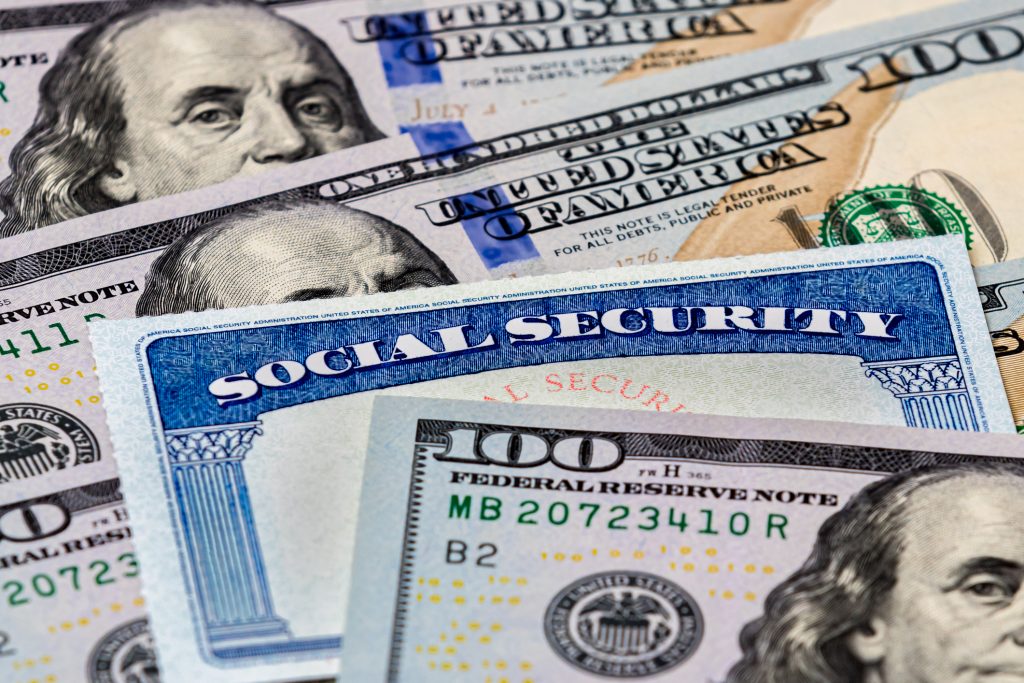
Image source: The Motley Fool/Upsplash
There’s a whole wide world of high-quality credit cards out there. You may even be able to get one from your favorite chain store — but is that a good idea? Here’s why cash back credit cards beat store credit cards.
Earn more versatile rewards
I don’t know many people who would turn down the chance to earn cash back on every dollar they spend on a credit card — and cash back cards give you this. Store credit cards usually earn in-store currency that can only be used on purchases from that store. Sure, saving money on a particular brand can be nice — but straight cash back can be used anywhere.
My own favorite cash back card pays me beaucoup rewards on my grocery spending. And since I redeem that cash back as a statement credit every month, I get to directly lower my credit card bill. That makes a solid difference in my budget.
Ready to earn cash back rewards? Of course you are — click here for The Ascent’s best cash back credit cards to get more budgetary breathing room.
Use your card at more places
One reason store credit cards can be kind of a bummer is that many of them are closed-loop — meaning you can only use them at that particular store, or perhaps a small group of stores owned by the same company. Personally, I don’t like keeping one-trick-pony credit cards in my wallet, where space is at a premium.
But a good cash back card can be used just about anywhere (one caveat is if you’re shopping in-person at Costco, it’ll have to be a Visa). You can use it to earn cash rewards not just at your favorite clothing or housewares store but also at the gas station, grocery store, drugstore — really anywhere you shop.
Get a sweet sign-up bonus
Store credit cards often come with a welcome offer. It’s usually kind of paltry, though — one example I’ve seen recently is 35% off your first purchase with the card. I suppose this could save you some real money if you happen to be making a large purchase. But a sign-up bonus from a great cash back card could be worth much more.
Cash back, points, or miles, just for spending on a new card? What could be better? Check out our favorite sign-up bonuses here.
A common sign-up bonus offer among cash back cards is spending $500 to $1,000 in the first three months with the card in exchange for $200 in cash back. That’s not bad — but you might do even better. One major cash back card issuer matches your entire first year’s cash back earning, with no limit. That easily beats a percentage off your first purchase with a store card.
Take advantage of an intro 0% APR offer
Store credit cards aren’t known for offering intro 0% APR offers. If you’re making a large purchase (like a computer or a home appliance), you might be offered deferred interest financing, but this isn’t the same thing.
Deferred interest financing gives you a period (often dependent on how much you’re spending) to pay off your purchase with no interest. But if you don’t manage to get the entire charge paid off before that time limit (maybe six to 12 months) is up, BOOM. You get charged all of the interest you would’ve paid, going back to the beginning. And store cards also often have punishingly high APRs — in some cases, topping 30%.
Granted, credit card interest is never cheap — the average rate is over 23%. But many of the best cash back credit cards come with a year or longer of 0% APR on new purchases and balance transfers (you’ll have to pay a 3% to 5% fee to transfer a balance, though). And if you don’t pay off the balance before the time is up, you’ll only be charged interest on the amount that’s left.
All in all, cash back credit cards are a much better deal than store credit cards. Don’t let that cashier bully you into handing over your driver’s license so you can save 35% today. Get a cash back card and earn a percentage back on all your spending.
Alert: highest cash back card we’ve seen now has 0% intro APR into 2026
This credit card is not just good – it’s so exceptional that our experts use it personally. It features a 0% intro APR for 15 months, a cash back rate of up to 5%, and all somehow for no annual fee!
Click here to read our full review for free and apply in just 2 minutes.
We’re firm believers in the Golden Rule, which is why editorial opinions are ours alone and have not been previously reviewed, approved, or endorsed by included advertisers.
The Ascent does not cover all offers on the market. Editorial content from The Ascent is separate from The Motley Fool editorial content and is created by a different analyst team.The Motley Fool has positions in and recommends Costco Wholesale and Visa. The Motley Fool has a disclosure policy.
 benzinga.com
benzinga.com fool.com
fool.com



